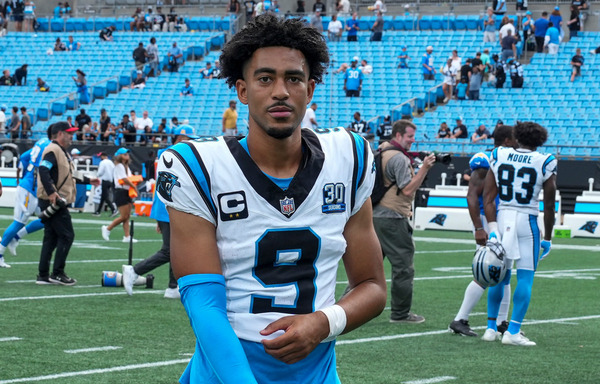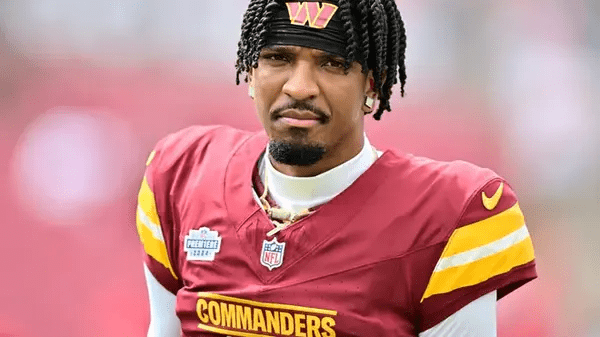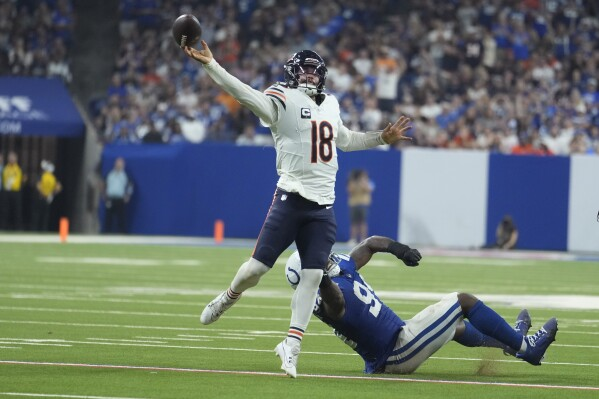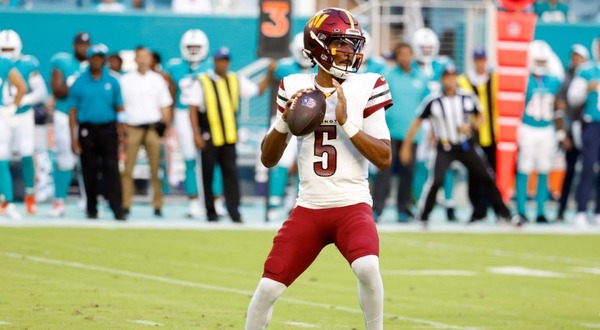NFL quarterback prospects remain the most challenging players to assess in professional football. The process of evaluating these potential stars is fraught with uncertainty, often feeling like solving a complex puzzle. From Bryce Young and C.J. Stroud to the legendary comparison of Ryan Leaf and Peyton Manning, the quarterback selection process has always been a gamble for NFL teams. General Managers invest countless hours watching film, conducting interviews, and exploring every avenue to uncover the next great signal-caller. However, their efforts frequently fall short, potentially due to overlooking crucial details in a player’s journey. See NFL Ticket Exchange: Your source for all NFL Tickets.
The High Stakes of Quarterback Selection
The consequences of a poor quarterback choice can be devasting for a franchise. Teams may face setbacks lasting up to a decade. The coaching staff of the Carolina Panthers has already been replaced due to the lack of success of Bryce Young. Now in his second season, Young has been replaced as journeyman Andy Dalton is the starting quarterback. The high stakes of quarterback evaluation make it a critical aspect of NFL team management.

A Tale of Two Rookies: Jayden Daniels and Caleb Willias
The contrasting experiences of two recent NFL Draft picks, Jayden Daniels and Caleb Williams, illustrate the complexities of quarterback evaluation. The Washington Commanders appear to have struck gold with Jayden Daniels’ the second overall pick in the NFL Draft. Daniels’ early success includes leading the Commanders to a 3-1 record and first place in the NFC East. His impressive accuracy, completing 86.7% of passes in a recent game, and minimal turnovers have contributed to the team’s strong start. Last season Washington finished with the fourth most turnovers (32). Giving extra possessions and short fields to your opponent makes a huge difference in game results.

Offensive Kliff Kingsbury has crafted a scheme that maximizes Daniels’ strengths, including his explosive running ability. Daniels’ extensive college experience, starting 55 games at Arizona State and LSU, has undoubtedly contributed to his smooth transition to the NFL. This success story highlights the importance of tailoring offensive schemes to a quarterback’s strengths and recognizing the value of college experience in rookie quarterbacks. See Osprey Lifestyle gear for hiking, biking and travel.
In contrast, Caleb Williams faces an uphill battle with the Chicago Bears. Williams is completing 61.7% of his passes but averaging only 5.6 yards per completion, with four interceptions in his first four games. Offensive coordinator Shane Waldon has a philosophy of pass-heavy game plans. Wide receivers DJ Moore and Keenan Allen both had over 1,000 yards receiving last year. First round draft choice Rome Odunze as the potential to be an elite target. Yet Williams struggles with decision-making when scrambling, indicating that his potential is evident but needs improved support from his offensive line and running game to thrive in the NFL. Transform your health with Ora Organic.

The Evolution of Quarterback Evaluation
While it’s too early to draw definitive conclusions about this year’s rookie quarterbacks, the contrasting experiences of Daniels and Williams provide valuable insights for future evaluations. NFL teams must continue to refine their rookie quarterbacks evaluation processes, considering both on-field performance and intangible factors that contribute to a player’s success at the professional level.
Barry Schustermann
Follow me on X @BarrySchust
Follow me on Facebook @Barry Schustermann




1 thought on “The NFL Quarterback Prospect Dilemma: Decoding Future Stars”
Comments are closed.